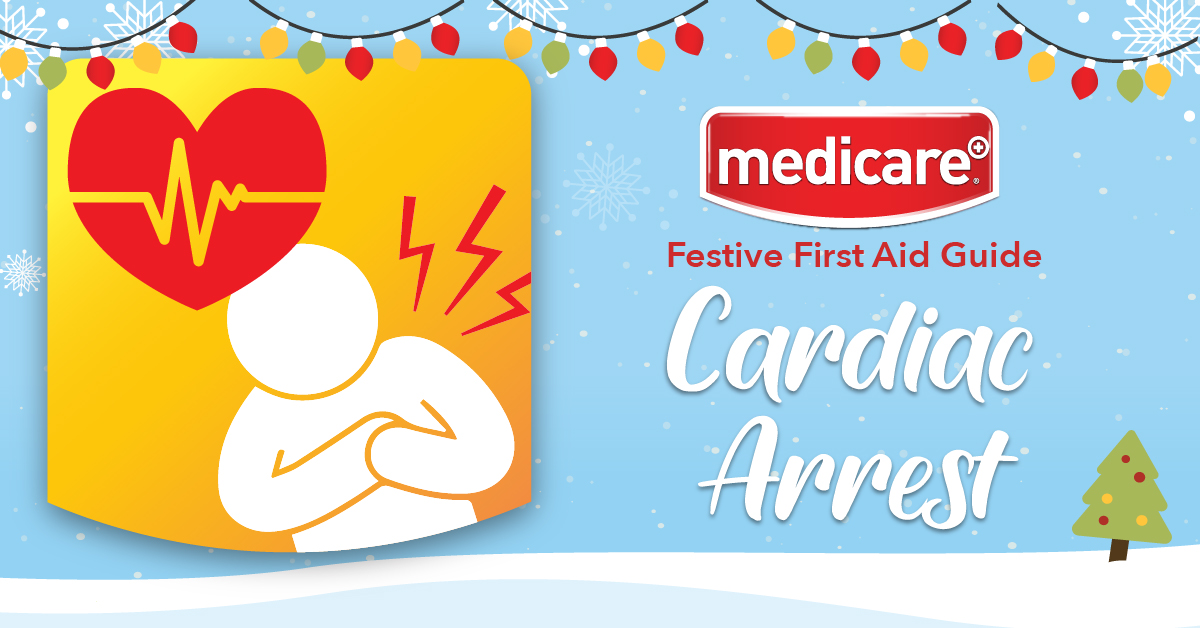Headlines
- Gentle Daily Ear Care with Medicare Ear Spray
- Breathe Easy with Medicare Nasal Spray
- Fleming Medical Renews Support for Irish Heart Foundation’s “Before Damage is Done” Campaign with over €25K Donation
- First Response for Minor Burns: Why MD508 Medicare Burn Spray Belongs in Every Medicine Cabinet
- Step Smart: Introducing the New Medicare® Footcare Range
The 12 Injuries of Christmas - Cardiac Arrest
18 December 2019

When someone falls victim to a sudden cardiac arrest, blood stops circulating around their body to deliver oxygen to the brain and other vital organs. Therefore, performing Cardiopulmonary Resuscitation (CPR) in this instance is crucial to keep oxygen flowing and increase their chance of survival.
Sudden cardiac arrest (SCA) is an electrical malfunction of the heart and can sadly affect people of all ages. Without CPR in a cardiac arrest emergency, a victim’s chance of survival is very slim. For every minute that passes in the event of an SCA, survival rates decrease by 10%, which is why early intervention is so important.
How to perform CPR
Before you perform CPR, you must check the scene of the emergency, to ensure that it is safe. Firstly, tap the casualty’s shoulder and ask ‘Are you OK?’ in both ears.
If you are alone, make sure that you remember to call 999 and grab the nearest available defibrillator. However, if someone else is present, you should get them to do this for you and you concentrate on the casualty.
Next, you should open the airway of the casualty by lying them on their back and tilting their head back to lift the chin.
If there is no indication of breathing after 10 seconds, you should immediately begin CPR:
- The rate of CPR is 30 chest compressions to 2 rescue breaths.
- Place your hands, one on top of the other, in the middle of the chest and use your weight to help you administer hard compressions that are at least 2 inches deep and at a rate of 100 compressions per minute.
- For rescue breaths, tilt the person’s head back slightly and lift the chin, pinch the nose and place your mouth over theirs to make a complete seal. Blow into their mouth to make the chest rise. Deliver two rescue breaths and continue with compressions. (If you are untrained in rescue breaths, you can still help the victim by using hands-only CPR).
- Continue giving cycles of thirty chest compressions and two rescue breaths until help arrives or the casualty begins to regain responsiveness and starts to breathe normally.

 Fleming Medical UK
Fleming Medical UK
